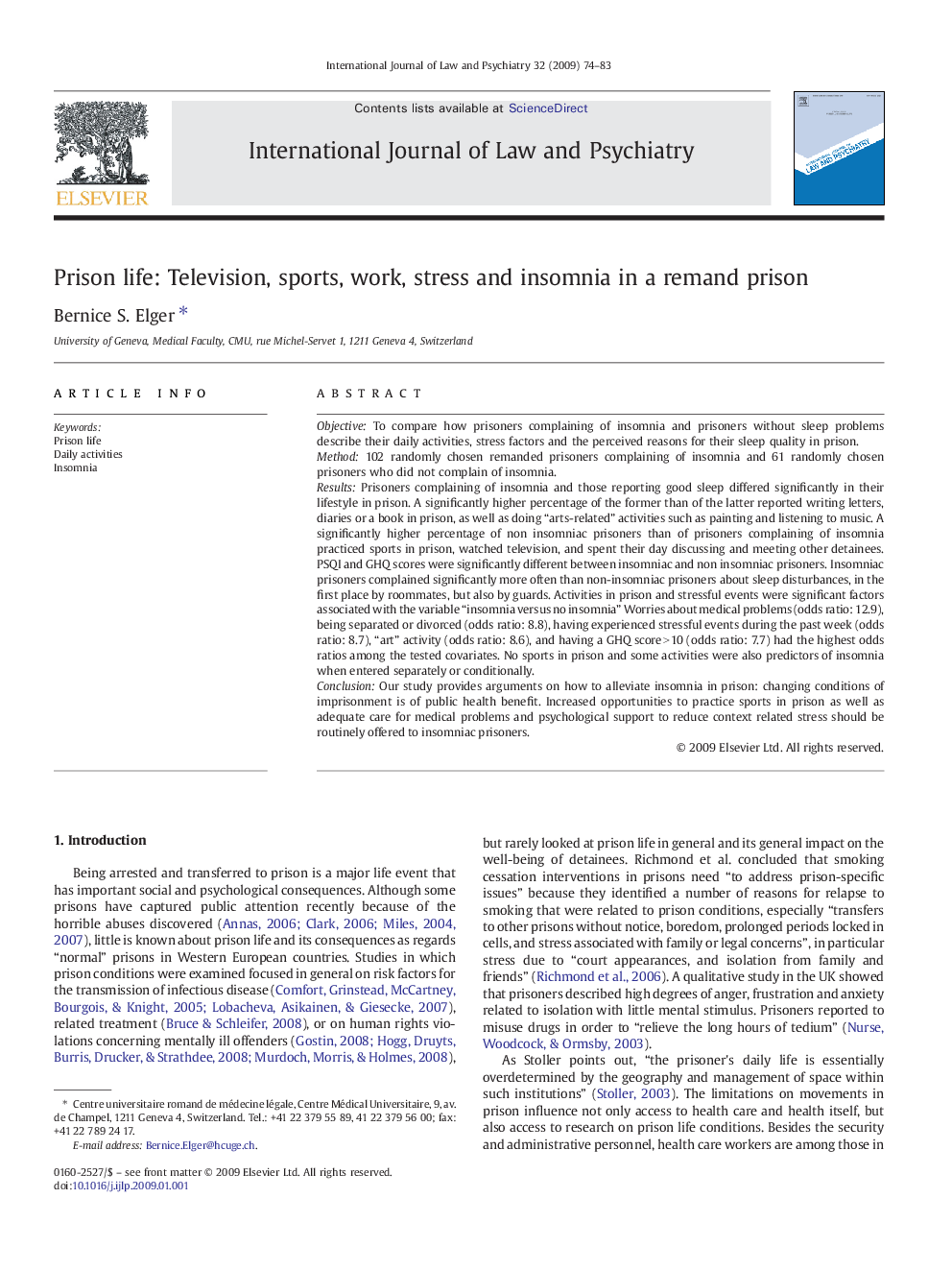| کد مقاله | کد نشریه | سال انتشار | مقاله انگلیسی | نسخه تمام متن |
|---|---|---|---|---|
| 101217 | 1422314 | 2009 | 10 صفحه PDF | دانلود رایگان |

ObjectiveTo compare how prisoners complaining of insomnia and prisoners without sleep problems describe their daily activities, stress factors and the perceived reasons for their sleep quality in prison.Method102 randomly chosen remanded prisoners complaining of insomnia and 61 randomly chosen prisoners who did not complain of insomnia.ResultsPrisoners complaining of insomnia and those reporting good sleep differed significantly in their lifestyle in prison. A significantly higher percentage of the former than of the latter reported writing letters, diaries or a book in prison, as well as doing “arts-related” activities such as painting and listening to music. A significantly higher percentage of non insomniac prisoners than of prisoners complaining of insomnia practiced sports in prison, watched television, and spent their day discussing and meeting other detainees. PSQI and GHQ scores were significantly different between insomniac and non insomniac prisoners. Insomniac prisoners complained significantly more often than non-insomniac prisoners about sleep disturbances, in the first place by roommates, but also by guards. Activities in prison and stressful events were significant factors associated with the variable “insomnia versus no insomnia” Worries about medical problems (odds ratio: 12.9), being separated or divorced (odds ratio: 8.8), having experienced stressful events during the past week (odds ratio: 8.7), “art” activity (odds ratio: 8.6), and having a GHQ score > 10 (odds ratio: 7.7) had the highest odds ratios among the tested covariates. No sports in prison and some activities were also predictors of insomnia when entered separately or conditionally.ConclusionOur study provides arguments on how to alleviate insomnia in prison: changing conditions of imprisonment is of public health benefit. Increased opportunities to practice sports in prison as well as adequate care for medical problems and psychological support to reduce context related stress should be routinely offered to insomniac prisoners.
Journal: International Journal of Law and Psychiatry - Volume 32, Issue 2, March–April 2009, Pages 74–83